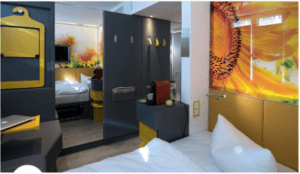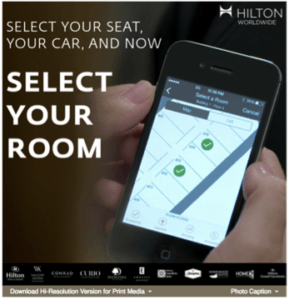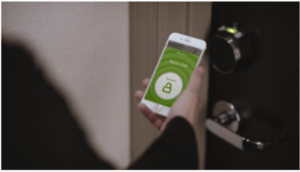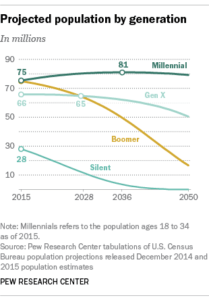Digitized Hotels or Staffless Hotels? That Is the Question for Hilton Worldwide

Hilton Worldwide is one example of a company in the hospitality industry adapting to digital transformation amidst existential challenges. Is the "staffless hotel" model in the company's future?
Digital technology has transformed the landscape of the hotel industry in a variety of ways. One obvious opportunity is that hoteliers are now able to track, collect, and analyze guest data to customize the guest experience. Another advantage is that hotels can engage customers using social media platforms such as Facebook and Twitter during the whole process. On the other hand, one prevalent challenge for the industry is commoditization due changing demographics, globalization, and guests’ access of massive amounts of info from their smartphones. Consequently, industry competition is fiercer, and personalized guest services and standardized operations seem to be the best options for hotels going forward [1].
Hilton Worldwide is a global hospitality company, with more than 4,700 hotels, resorts and timeshare properties [2]. Given its value proposition of delivering outstanding hotel stay experiences, Hilton levered digital technology to collect and analyze guest feedback data from surveys, social media and review sites, and glean insight into changing consumer preferences. As a result, Hilton altered its operating model to cater to its key stakeholders’ (“hotel guests”) evolving needs. Specifically, one of its surveys revealed that over 80% of its business traveler guests sought the ability to select their room [3]. In response, Hilton took proactive steps and made over $500 million in technology investments to roll out mobile services on a large scale and build out its digital platform [4]. One major output was the development of a software application for digital check-in, which took advantage of widespread adoption of smartphones and tablets. Once booking is complete, Hilton’s digital check-in process works as follows [3]:
- Room selection: guests can use their Internet connected devices to check-in and choose a room. Room inventory is updated real-time and photos are available.
- Special requests:After choosing a room, guests can further customize their stay by purchasing upgrades and requesting specific amenities to be delivered to their room before arrival.
- Room key:In 2015, the company began adding the technology for doors to be unlocked with guests’ smartphones, enabling guests to go straight to their rooms upon arrival.
- Check-out: Guests can skip the front desk upon departure and their bill is automatically sent to their email address.
Overall, the new streamlined process results provides guests with a variety of additional benefits including less idle time waiting in queues during check-in, and greater choice and control over their hotel stay experience. Hilton is also happy as it leads to increased guest satisfaction, increased utilization and higher operational efficiencies.

Although digital technology affords opportunities for Hilton to better execute on its mission to provide exceptional guest service, there are also significant challenges the company faces going forward in part due to innovative technologies and changing demographics. In the US for example, millennials, who are now the largest living generation [5], are increasingly embracing sharing economy companies such as Airbnb. Consequently, the lodging industry in general is in the midst of disruption. Hence, it is clear that Hilton hotels will need to make further adjustments to its business and operating models. The digital check-in technology was a great innovation, however, it is unclear whether this will be sufficient for Hilton to sustain its competitive position relative to current competitors (e.g. Starwood Hotels, Marriott International) and up-and-coming competitors (e.g. Airbnb, HomeAway).
Looking forward, Hilton hotels should cater more to the millennials population and should perhaps consider the “staffless hotel” model that was apparently implemented by Germany’s Cocoon Hotels. In 2015, Cocoon Hotels operated a 75-room cloud technology-based, completely staffless, retro-inspired budget hotel, Hotel Buddy, in downtown Munich and achieved a 90% occupancy rate [6]. This model allows guests complete control over their stay: booking, check-in through a tablet, among other activities. Moreover, guests are provided a keycard through a machine, which is then inserted in the elevator, and are automatically taken to the correct floor.
One of the benefits of the aforementioned model is that it seems to align with millennials need for greater control, personalization, and fast service at a more affordable price. No staff also reduces operating costs, specifically labor costs, although some staff may prove critical for Hilton hotels given its scale and for regulatory reasons. A big potential concern for Hilton resulting from this model is safety issues – security at the local level, and digitally via cyber security threats and potential increased fraud due to heavy reliance on technology.
Longer-term, it seems that the impact of staffless hotels on legacy hotels could be similar to the expected impact of driverless cars on the automotive industry. Can Hilton implement the model in a cost-effective, safe, reliable manner? Also from a social perspective, will the displaced employees find other ways to contribute meaningfully to the economy and maintain a good standard of living? If so, Hilton should definitely give “staffless hotels” a chance.
Word Count (800 words)
[1] http://www-935.ibm.com/services/us/gbs/thoughtleadership/ibv-hotel2020.html
[2] http://hiltonworldwide.com/about/
[4] http://www.wsj.com/articles/hilton-books-upgraded-technology-1406503197
[5] http://www.pewresearch.org/fact-tank/2016/04/25/millennials-overtake-baby-boomers/
Note: Images sourced from Google Images.






I’m not sure I agree staffless is the way to go for Hilton. Hilton’s primary customer base and the bulk of their revenue is not from millennials (see financial report [1]), it’s from business/corporate travelers (Hilton, Hampton Inn, Doubletree) or families (for their Homewood Suites, Embassy, Hilton Garden Inn, etc. brands). These two categories of consumers would, in my opinion, be less interested in the whole keyless entry, self check-in, etc. if it comes at the cost of convenience. Additionally, for Hilton’s higher end Waldorf and Conrad brands, customer service is a critical component. Any luxury hotel chain can install new technology, but it’s the personal touch of a hotel concierge, receptionist, or other staff member that keeps people coming back.
[1] https://www.sec.gov/Archives/edgar/data/1585689/000158568916000161/a2015hwh10-k.htm
Thanks bay2016. This is a great post. I’ve used Hilton’s app and have loved the mobile check-in and room selection. It was a move that was very consistent with the way travel was evolving digitally (ex. checking in early for flights, mobile boarding passes, etc.)
The competitive pressure you highlighted was very interesting. I agree, I think Hilton needs to make bold moves, quickly to compete against the alternatives and substitutes. I read an interesting article about Marriott – they just set up a Hotel Innovation Incubator at the Charlotte Marriott City Center. It’s an innovation lab, with what they call “live beta”. They’ve implemented several digital changes (keyless entry, digital experiences in their fitness center, etc.) but they have “beta buttons” that allow customers to approve / disapprove of innovations with the push of a button. This gives Marriott real-time feedback and the ability to respond quickly. It’s the same initiatives that Hilton is using but with a direct feedback mechanism which I think is crucial before nationwide implementation.
The competition is fierce – hopefully Hilton can keep up!
http://news.marriott.com/2016/10/marriott-hotels-introduces-worlds-first-hotel-innovation-incubator-m-beta-charlotte-marriott-city-center/
How can hotels make a guest’s stay feel special and personalized without the hands-on touch of staff? While many prefer the ease of checking in through their smartphone, there are still guests that want to feel welcomed by someone in the lobby when they first walk in. Besides the social impacts of displacing jobs, do you think this makes it more difficult for hotels to compete for loyal guests in an age of digitalization?
How can hotels use technology to improve the customer’s stay once they are in their guest rooms? Are there technologies being developed to turn the rooms into “smart home” like experiences?
There is more challenges to Hilton than the implementation of “staffless” solutions, specially in an industry context that is in the short-term facing M&As consolidations (Marriott + Starwood), but also already losing customers to alternative models (Ex. Airbnb) that can be a potential threat in the long run.
How to deal with short-term challenges? I believe Hilton will need to keep pace on the rapid innovative digital transformation facing the hospitality industry, as it can’t afford to lose the race with its direct competitors. I believe a good combination of listening to what customers want in order to prioritize digitazion initiatives plus leveraging Hilton’s HHonors membership program to retain (and potentially acquire) customers will be key.
On the other side, Morgan Stanley’s survey data points to 19 percent of leisure and 18 percent of business travelers having used Airbnb at least once, and that those numbers will grow to 25 percent and 23 percent, respectively, over the next 12 months [1]. Though these are incipient results I believe there is real value in understanding asap what of Airbnb’s value proposition is driving substitution.
[1] http://www.bloomberg.com/news/articles/2016-11-14/morgan-stanley-airbnb-s-threat-to-hotels-is-only-getting-sharper
I think this is a great model for hotels that have high traffic. Las Vegas, for example. While some people may like to be greeted at the front desk, most people don’t like to wait in line to check out when there is a long line of people checking in. During the busy season, it can be frustrating trying to get your phone call through to the room services department and it takes even longer for them to actually bring what you need up to the room. I agree that this is a smart move to reduce the ‘wait time’ in hotels. I think hotels should invest more in getting the customer services right rather than trying to deploy smart functions for turning lights and showers on/off, because this will lead to a higher satisfaction level.
While the novelty of staffless hotels seems like it could make for an attractive experience, I have generally found that pleasant experiences are made extraordinary by staff who go the extra mile. How could digital technology replicate the full hospitality experience beyond the essential baseline of convenience in the booking and check-in process? If we can digitize and automate that, I think we would truly have a differentiated experience. Until then, I still think hotel staff provide an immense value.